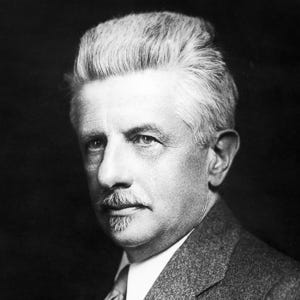The Turn is a reader-supported publication. Please consider becoming a paying subscriber or making a one-time or recurring donation to show your support.
By
This has been the longest most outrageously unacceptable hiatus I have ever taken from The Turn. I apologize profusely to readers and supporters. And today I offer an explanation for this absence which will hopefully inspire readers to stick with The Turn, which pretty much means stick with me.
Since the beginning of last summer I have seriously ratcheted up my research efforts. However, almost none of it has been published. I am sitting on close to 5 long-form essays (some finished, some very close to finished) which historian Scott Miller and I have been labouring over. There have been major changes in how I go about truth-seeking. Things have taken a decidedly academic direction. Working with a meticulous PhD historian like Dr. Miller has been invaluable. I’m not so sure I can claim the title of autodidactic scholar anymore when I get so much help from people within the formal academy.
Becuase of Dr. Miller’s help, and many other academic friends who offer guidance, new essays will feature big improvements meant to strengthen the arguments put forward, and ultimately get us closer to the truth of things. One of these important new features is the adoption of Chicago style footnoting and bibliographies on long-form essays (not on my op-ed’s which are kind of ranty).
But what has been taking so much time, and has prevented me from publishing here, is the gathering up and surveying of literally hundreds of books and essays that serve as the secondary sources of my research (I almost deal exclusively with secondary sources, that is, academic writing by scholars who have dealt with primary sources). I think of this approach as fitting nicely into what Marshall McLuhan described as a “field approach.”
Unlike the field approach employed in anthropology, that is where ethnographers and the like are embedded in “the field” in order to more closely study some tribal group of primitive peoples, McLuhan’s field approach referred to what he called “the total field.” To McLuhan, this meant that anything within the observable universe that was somehow human derived. Art and pop culture, along with historical texts and modern day opinion or academic writing and beyond would all find themselves within McLuhan’s “total field.”
What I have discovered is that there still exists in this so-called inter-disciplinary age much academic silo-ing and the partitioning off of ideas into single-discipline containers. Here I am somewhat reluctant to move into a full-throated embrace of inter-disciplinarinism, becuase I believe there is much truth to the notion that specialization allows for a depth of inquiry often lost on the generalists. However, there is an important truth-seeking and sense-making role for the advanced generalist who employs a disciplined academic field-like approach to dot-connecting. This is my goal. I have partners in crime. It takes time. The reading is intense.
Matters become even more exciting (at least to me) when one considers the other side of the approach that Dr. Miller and I are taking. That is, a history of ideas approach in the tradition of Dr. Arthur Lovejoy, and later, Dr. Mortimer Adler (think of Adler’s Syntopicon (a two volume index of ideas found in the canon of Great Western books) as a building on of Lovejoy’s academic tradition). History of ideas scholarship has made many advances since Lovejoy and Adler and my number one goal, the priority of my mission, along with offering the most comprehensive defense of Western culture, values, and uniqueness the world has ever seen, is to make some sort of meaningful contribution to what Dr. Lovejoy started.
I need more time. But a mountain of deep inquiry, in the form of heavily footnoted essays that delve into the history of Western knowledge production and education will soon be unleashed. Be warned. But also, please be patient, and please stick with me.





I want my money back!
hahaha - just kidding. This is a welcome note from you just to get me thinking about how one even approaches learning and the different scholarship modalities. Your industry and enthusiasm is unique and inspirational. No shit, it really is, James. I'm definitely going to get Adler's Syntopicon. Is he on Substack? ;)
Deeply researched articles are appreciated! I'd need several lifetimes to deeply research all the things I'm interested in. Thank you for sharing what you learn with us.